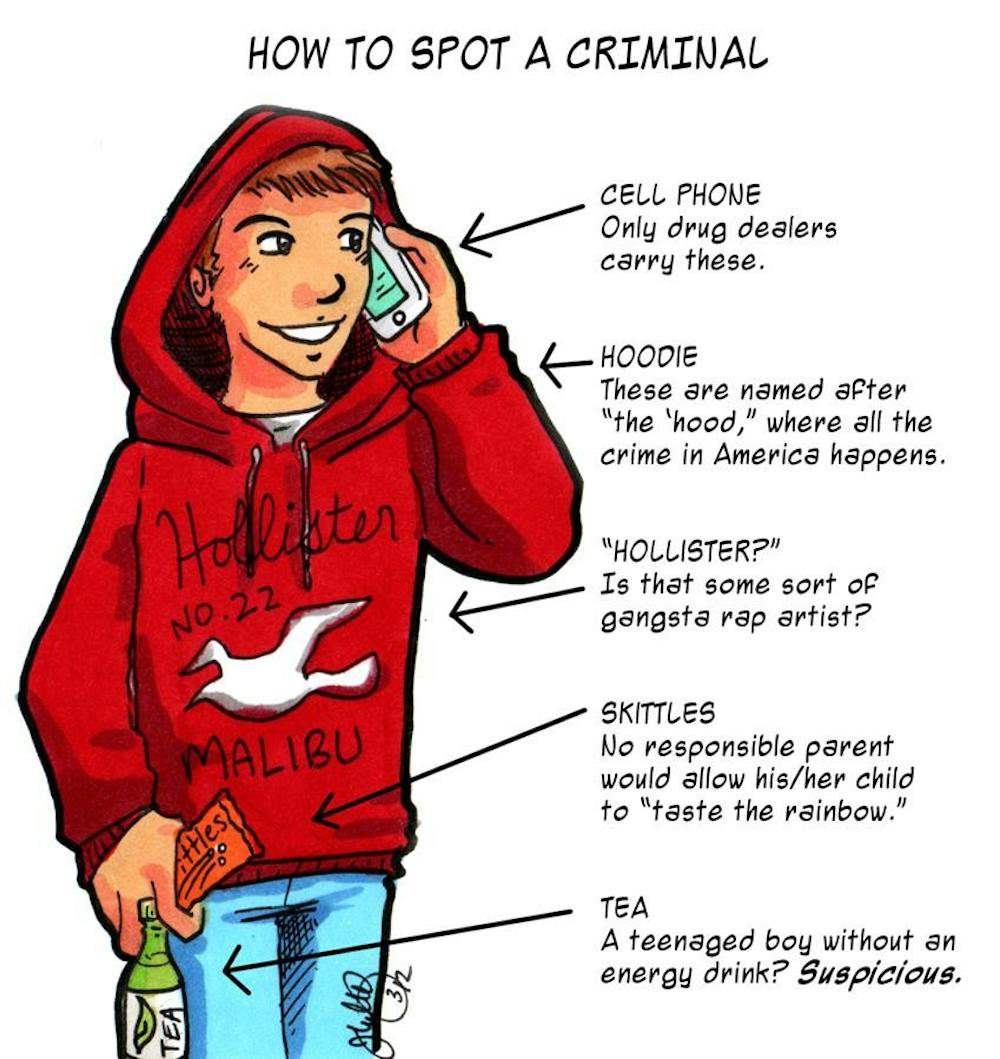In an outrageous show of victim blaming last Friday, Geraldo Rivera, an attorney, talk-show host and reporter, said he believes “the hoodie (that Trayvon Martin was wearing) is as much responsible for Trayvon Martin’s death as George Zimmerman was.”
Rivera went on to explain that he never lets his own son — who is “a dark-skinned kid” — go out in a hoodie or anything else that would make it seem like he was trying to “stylize himself as a gangster.”
Rivera’s point is clear. If you look like a gangster — that is, if you’re dark-skinned and wearing a hoodie — people are going to feel threatened, and it might cost you your life.
It seems Rivera is suggesting that if all dark-skinned people stop wearing hoodies, we can systematically eliminate crime motivated by prejudice against dark-skinned people wearing hoodies.
There are innumerable problems in Rivera’s offensive diatribe, but the most glaring ones are that Rivera is using his identification as a member of a minority group — Rivera is an Hispanic-American — to justify victim blaming, and he is perpetuating a stereotype by claiming that this massive, complex problem can be solved simply by not presenting yourself as a stereotype (i.e., by not wearing a hoodie if you’re black or Latino).
Race and ethnicity are not relevant when it comes to victim blaming and racial profiling.
Anyone can racially profile anyone, and you can even blame a victim if you’re the same race, ethnicity, gender or sexual orientation as him or her.
An example of this problematic practice is Corey Dade’s March 21 article for NPR, “Florida Teen’s Killing: A Parent’s Greatest Fear.”
In this article, Dade, who is black, discusses the “rules” that his parents drilled into him when he was growing up: never loiter outside, never go anywhere alone, never talk back to the police, never reach into your pocket in the presence of police, and never doubt that trouble could happen anywhere.
Respecting the police is good advice for any kid no matter what his or her race, but it doesn’t solve the deep systemic and cultural problem that is racial profiling.
More importantly, it doesn’t prevent a tragic incident from occurring.
We can’t excuse the injustice that fatally befell Trayvon Martin as self-defense against suspicious behavior.
We need to condemn victim blaming and confront the reality of racism in the United States.
Not hoodies.
Neighborhoodie watch?

Get stories like this in your inbox
Subscribe




